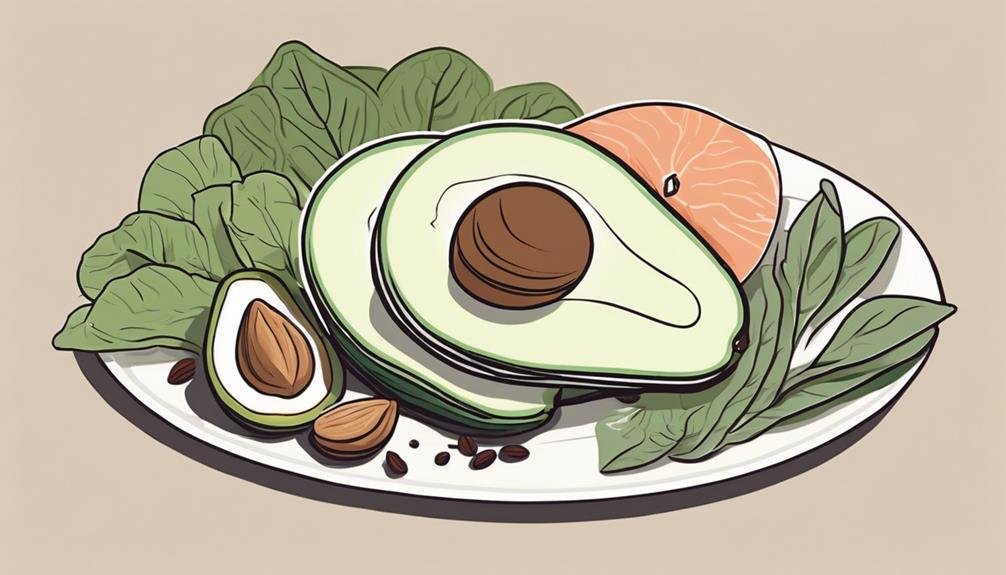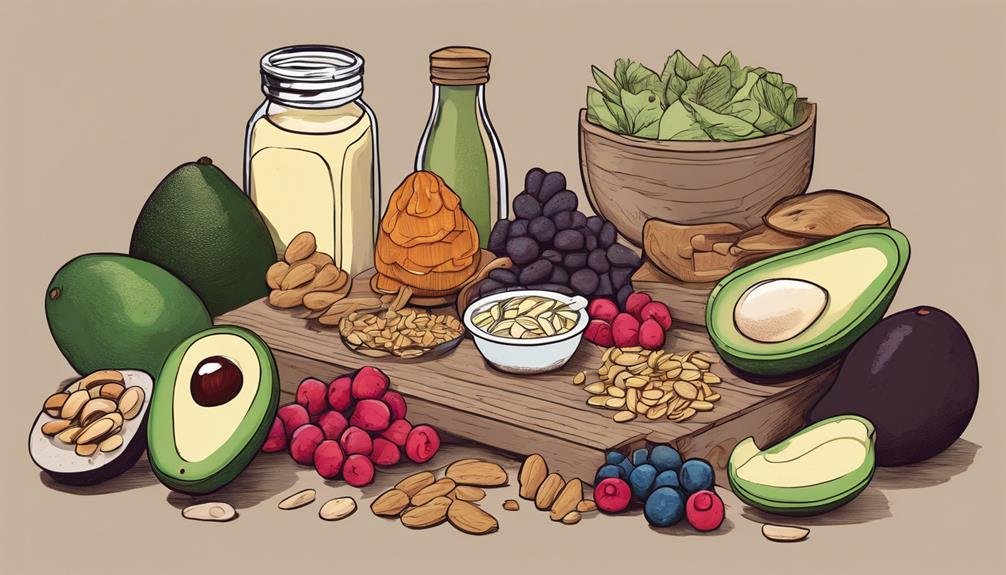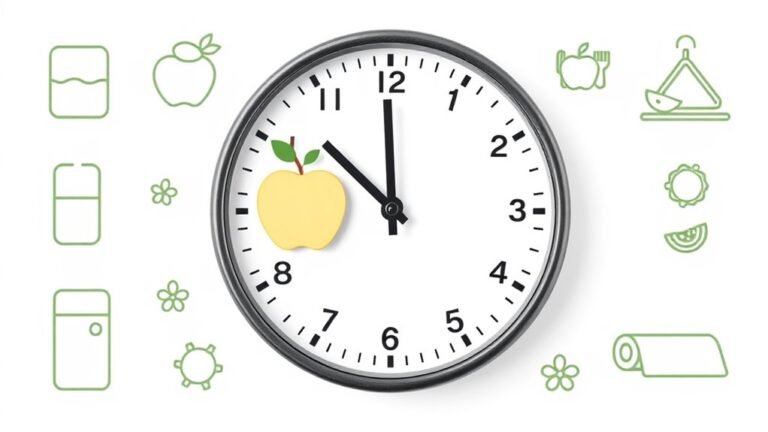3 Best Gut-Boosting Foods for Men Over 40
To boost your gut health at 40 and beyond, focus on three key foods. First, fermented foods like yogurt and kimchi are packed with probiotics that enhance digestion and reduce bloating. Next, load up on fiber-rich vegetables such as broccoli and carrots to promote regular bowel movements and nourish beneficial gut bacteria. Finally, healthy fats and lean proteins from sources like avocados and chicken support gut lining integrity and overall metabolism. Incorporating these foods can make a big difference in how you feel. There's even more to discover about optimizing your diet for gut health!
Key Takeaways
- Fermented Foods: Incorporate yogurt, kefir, and kimchi daily to enhance digestion and introduce beneficial probiotics for gut health.
- Fiber-Rich Vegetables: Fill half your plate with colorful veggies like broccoli and carrots to promote regular bowel movements and feed gut bacteria.
- Healthy Fats: Include sources like avocados and olive oil to reduce inflammation and support gut lining integrity.
- Lean Proteins: Eat chicken, turkey, and legumes to aid digestion and maintain muscle mass as metabolism slows.
Fermented Foods for Gut Health
Fermented foods are a powerhouse for gut health, offering beneficial probiotics that can enhance digestion and overall well-being. Incorporating items like yogurt, kefir, sauerkraut, and kimchi into your diet can greatly improve your gut flora.
These foods help balance the bacteria in your intestines, making it easier for your body to absorb nutrients and fight off harmful pathogens. Plus, they can reduce bloating and discomfort, which many men over 40 experience.
Try adding a serving of fermented foods to your meals daily; it's a simple way to boost gut health. Remember, moderation is key, so listen to your body as you explore different options.
Your gut will thank you for it!
Fiber-Rich Vegetables
Incorporating fiber-rich vegetables into your diet can considerably enhance your gut health and overall digestion.
Vegetables like broccoli, Brussels sprouts, and carrots are packed with dietary fiber, which helps promote regular bowel movements and prevents constipation. These veggies also feed the beneficial bacteria in your gut, supporting a balanced microbiome.
Aim to fill half your plate with a variety of colorful vegetables at each meal. Don't forget about leafy greens like spinach and kale, which aren't only high in fiber but also loaded with essential nutrients.
Steaming or sautéing these vegetables can make them more palatable while retaining their fiber content.
Healthy Fats and Proteins

Healthy fats and proteins play an essential role in nurturing your gut health and overall well-being as you age.
Incorporating sources like avocados, olive oil, nuts, and fatty fish can provide the healthy fats your body craves. These fats help reduce inflammation and support the gut lining.
Meanwhile, lean proteins from sources such as chicken, turkey, beans, and legumes are vital for muscle maintenance and repair, especially as your metabolism slows down. They also assist in the production of enzymes that promote digestion.
Questions
How Do I Know if My Gut Health Is Poor?
You'll notice signs like bloating, irregular bowel movements, fatigue, or food intolerances. If you frequently experience discomfort or digestive issues, it might indicate poor gut health. Listening to your body is key to understanding this.
Can Supplements Replace Gut-Boosting Foods?
Supplements can't replace gut-boosting foods; they complement them. You need diverse nutrients, fiber, and probiotics found in whole foods to thrive. Prioritize a balanced diet first, then consider supplements as an additional support.
Are There Specific Foods to Avoid for Gut Health?
Yes, you should avoid processed foods, excessive sugar, and high-fat dairy products. These can disrupt your gut health and lead to inflammation. Instead, focus on whole, nutrient-dense foods that support your digestive system effectively.
How Often Should I Eat Gut-Boosting Foods?
Think of gut-boosting foods as your daily vitamins for a healthier life. You should aim to include them in your meals regularly—ideally, every day or at least several times a week for peak benefits.
Can Gut Health Affect Mental Well-Being?
Yes, gut health can notably affect your mental well-being. When your gut's balanced, it produces neurotransmitters that influence mood and cognition, so nurturing your gut helps improve your overall mental health and emotional resilience.
Conclusion
Just like a well-tended garden flourishes with the right nutrients, your gut thrives on the foods you choose.
By incorporating fermented foods, fiber-rich veggies, and healthy fats into your meals, you're planting seeds for a healthier digestive system.
Tend to this garden with care, and you'll harvest not just better gut health, but also enhanced vigor and energy.
So, dig in and nurture your body's foundation, ensuring it blooms beautifully for years to come.







